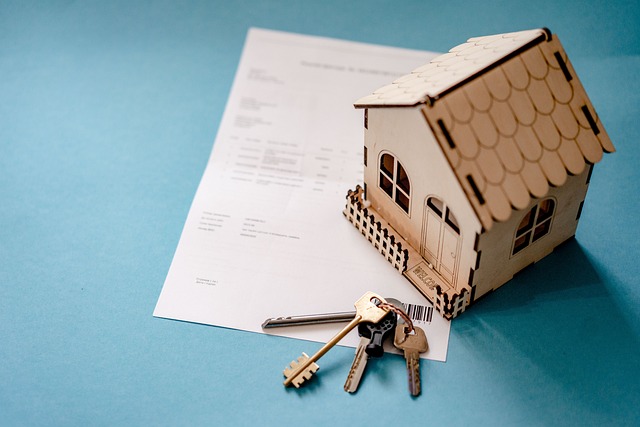An Address Occupant Lookup (AOL) is a process governed by a complex legal framework that includes adherence to data privacy laws and consent requirements, as seen with the Fair Credit Reporting Act (FCRA), Privacy and Security Oversight (PSO) Rule under HIPAA, and state-specific acts like the California Consumer Privacy Act (CCPA). Organizations conducting AOLs must strictly follow federal and state regulations to ensure compliance, obtain proper authorizations for accessing personal data, maintain its confidentiality, and uphold privacy rights. The process relies on verifiable and precise legal documentation, such as court records or utility bills, to confirm identity and residency, which is crucial in tenant screenings, background checks, and debt collection. Compliance with privacy laws like the GDPR and CCPA is essential throughout, necessitating rigorous security measures, encryption for data protection, and clear communication about data usage. By prioritizing legal compliance and respecting individual privacy rights, businesses offering AOL services can mitigate risks and maintain a trustworthy reputation in this sector.
When engaging in an Address Occupant Lookup (AOL), it’s crucial to navigate the complex tapestry of legal requirements that govern data access and privacy. This article delves into the essential documentation and compliance measures necessary for lawful AOL queries. We will explore the legal framework, the types of documents required, and how to remain compliant with privacy and data protection laws. Additionally, we’ll address state-specific legislation to ensure AOL processes are conducted correctly. Understanding these components is key to effectively utilizing AOL while adhering to legal standards.
- Understanding the Legal Framework Governing Address Occupant Lookup
- Types of Documentation Required for AOL (Address Occupant Lookup) Queries
- Compliance with Privacy and Data Protection Laws in AOL Processes
- Navigating State-Specific Legislation and Requirements for AOL Reporting and Usage
Understanding the Legal Framework Governing Address Occupant Lookup

The process of an Address Occupant Lookup is subject to a comprehensive legal framework that governs data privacy, access to information, and consent for personal data usage. This framework is primarily established by legislation at both federal and state levels, ensuring compliance with regulations such as the Fair Credit Reporting Act (FCRA) in the United States, which sets standards for accuracy and privacy when it comes to consumer information reports. Additionally, the Privacy and Security Oversight (PSO) Rule under the Health Insurance Portability and Accountability Act (HIPAA) protects health information and impacts how healthcare data can be used for address lookup purposes.
To navigate these legal waters, entities conducting Address Occupant Lookups must adhere to strict protocols that dictate the collection, use, and dissemination of personal information. This includes obtaining necessary authorizations from individuals whose data is being accessed, maintaining the confidentiality and integrity of the data, and ensuring that the lookup process does not infringe on any privacy rights. Staying abreast of state-specific laws and regulations, such as the California Consumer Privacy Act (CCPA), which provides consumers with enhanced rights regarding their personal information, is also crucial. Understanding these legal parameters is essential for organizations to conduct Address Occupant Lookups legally and ethically while safeguarding individual privacy rights.
Types of Documentation Required for AOL (Address Occupant Lookup) Queries

When conducting an Address Occupant Lookup (AOL), it is imperative to have access to legitimate and accurate legal documentation. This process involves verifying the identity and residency of individuals at a specific address, which is crucial for various purposes, including tenant screening, background checks, and debt collections. The types of documentation required for AOL queries typically include official records such as court documents, property deeds, or utility bills that can confirm the occupancy of an individual at a given location. Additionally, consent forms signed by the occupant granting permission for the information to be released are essential. These documents must be current and authenticated to ensure compliance with privacy laws and regulations. Furthermore, any request for AOL must adhere to the standards set forth by the Fair Credit Reporting Act (FCRA) and relevant state laws, which dictate the permissible purposes for obtaining such information and the safeguarding of personal data. It is also important to note that the documentation should be obtained directly from authoritative sources to maintain its credibility and legitimacy, thus providing accurate and reliable occupant information for the intended use.
Compliance with Privacy and Data Protection Laws in AOL Processes

When conducting an Address Occupant Lookup, adherence to privacy and data protection laws is paramount. Organizations must navigate the complex web of regulations that govern the handling of personal information, such as the General Data Protection Regulation (GDPR) in Europe, the California Consumer Privacy Act (CCPA), and other regional statutes. These laws dictate how personal data can be collected, processed, stored, and transferred, ensuring that individual privacy rights are upheld. To comply with these regulations, entities performing Address Occupant Lookups must implement robust security measures to protect sensitive information against unauthorized access or breaches. This includes obtaining explicit consent from individuals before processing their data, employing encryption for data in transit and at rest, and limiting data access to authorized personnel only. Additionally, transparency is key; organizations must clearly communicate to users how their data will be used and provide mechanisms for users to exercise their rights under the applicable privacy laws. The Address Occupant Lookup process must be designed with these legal requirements in mind to ensure that all data handling practices are not only compliant but also respectful of individual privacy. By prioritizing compliance, businesses can mitigate legal risks and foster trust among their customer base, which is essential for maintaining a reputable service in the realm of Address Occupant Lookups.
Navigating State-Specific Legislation and Requirements for AOL Reporting and Usage

In conclusion, navigating the legal landscape surrounding Address Occupant Lookup (AOL) requires a diligent approach that respects privacy and adheres to data protection laws. This article has demystified the process by outlining the essential legal documentation needed for AOL queries, emphasizing compliance with these critical regulations. It is imperative for individuals and entities engaging in AOL to understand the nuances of state-specific legislation and the broader legal framework. By doing so, they can ensure that their AOL practices are not only legally compliant but also ethically sound, ultimately fostering trust and reliability in the information obtained through such lookups. Understanding the types of documentation required and the importance of privacy and data protection cannot be overstated, as these elements form the cornerstone of responsible AOL usage.



